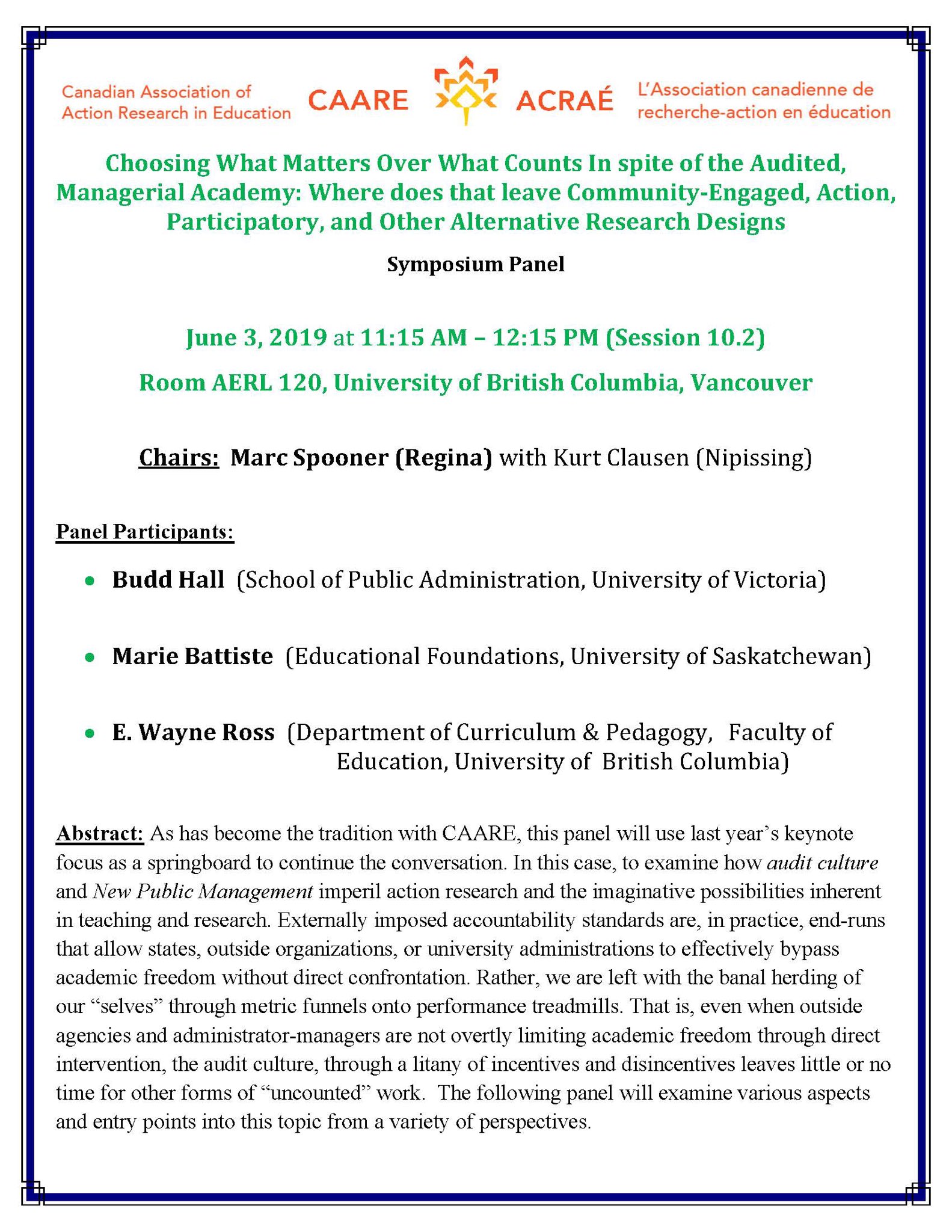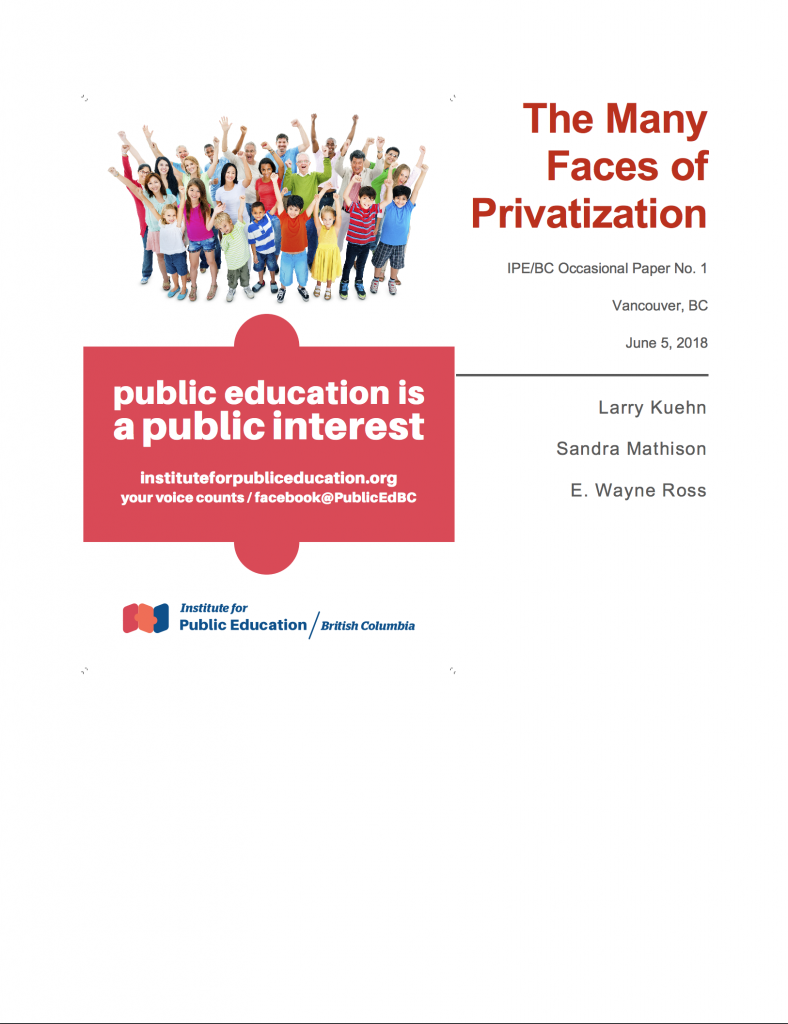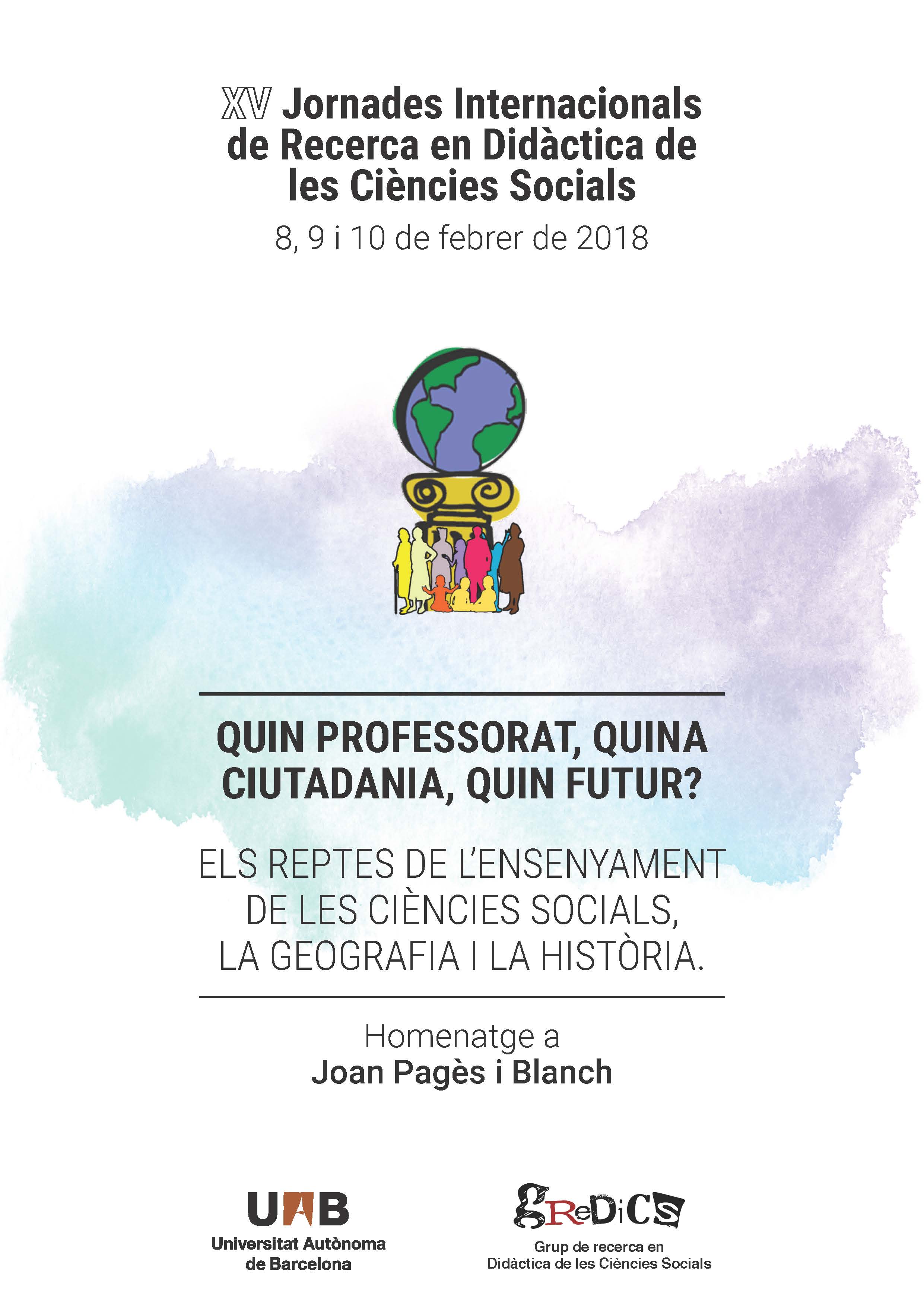Sandra Mathison: Privatizing private schools should top list of funding changes
Published in The Province (Vancouver, BC)
October 9, 2019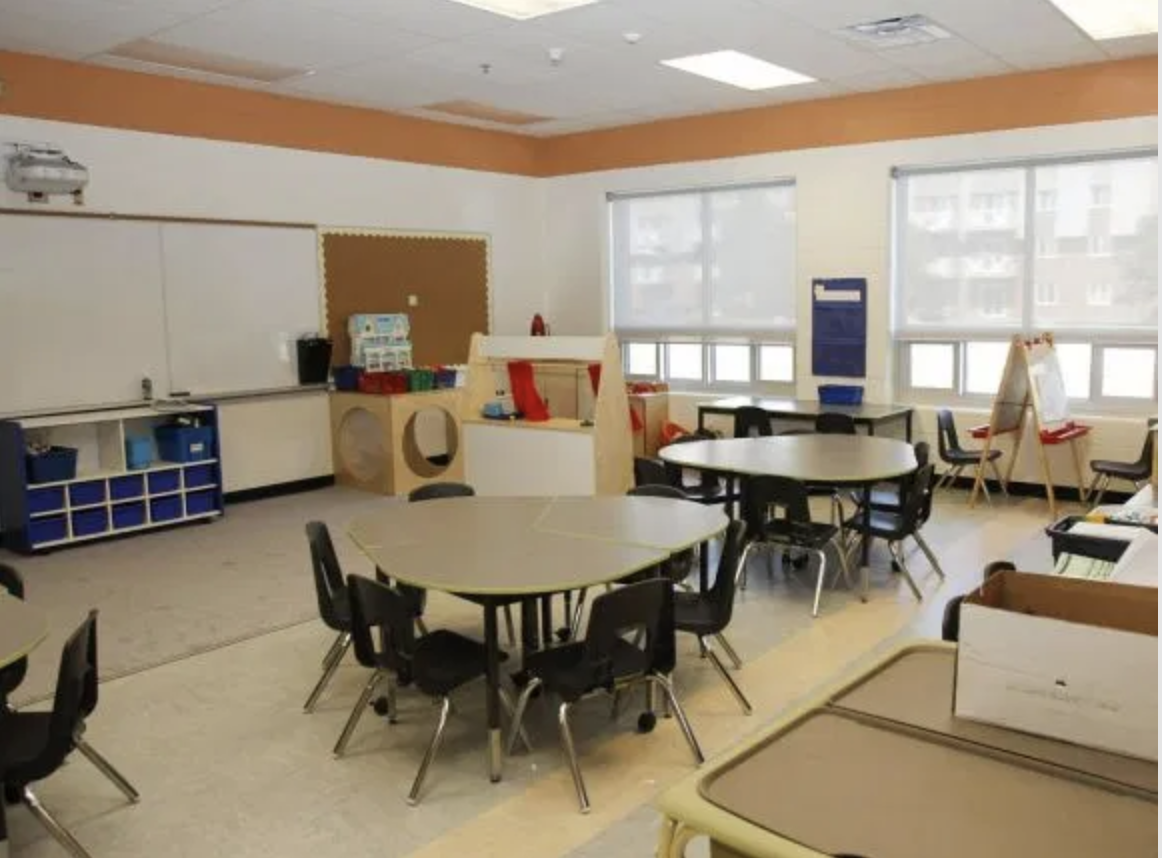
Since 2013, the province has subsidized private schools to the tune of $2.6 billion. The subsidies for 2018-19 alone were $426 million, and projections for this school year are $436 million.
Privatizing private schools should top list of funding changes
By Sandra Mathison
Opinion: With a public system still reeling from more than 15 years of cuts by the previous government, there is no excuse for funnelling billions of dollars to private schools.
As the B.C. education ministry rethinks how to fully and adequately fund the province’s schools, at the top of their list should be privatizing private schools by discontinuing public subsidies to independent schools.
Since 2013, the province has subsidized private schools to the tune of $2.6 billion. The subsidies for 2018-19 alone were $426 million, and projections for this school year are $436 million.
These subsidies to private schools have increased at an astronomical rate: funding increases (adjusted for inflation) to private schools have increased by 122.8 per cent since 2000-01, compared to a 15.9-per-cent increase in funding to public schools during this same period.
According to recent surveys by the Institute for Public Education, CUPE B.C. and the B.C. Humanist Association, most British Columbians believe public funding of private schools needs to end. In a poll that Insights West conducted for us in May, four in five British Columbians (78 per cent) oppose providing taxpayer funds for elite private schools. Sixty-nine per cent of British Columbians oppose funding to faith-based schools.
Let private schools be private, and let them deserve the label “independent schools.”
Private schools cost taxpayers by direct taxpayer-supported subsidies, but also by exemptions from paying property taxes, numerous personal tax benefits for individuals, and collecting large sums of tax-deductible donations.
Private schools also cost B.C. in non-economic ways. Faith-based schools are allowed to ignore human-rights laws and discriminate against employees based on marital status or sexual orientation. Our poll shows that few British Columbians are aware that faith-based schools are exempted from the B.C. Human Rights Code, but once they were aware of this, 81 per cent of respondents did not believe they should be allowed this exemption.
Let private schools be private, and let them deserve the label “independent schools.”
Private school admission processes segregate students by class and/or beliefs, rejecting students who don’t “fit” their values. These schools are therefore isolating students from peers who are not like them. Many B.C. taxpayers’ children would not be admitted to these private schools — because they can’t afford them, do not have academic credentials, or they are not suitable given the school’s philosophy.
Private schools reject the idea that schools ought to be about equity, about providing an education for all students regardless of their individual attributes.
If the education ministry needs a plan, they could immediately end subsidies to elite “Group 2” schools, those spending more per student than public schools and charging significant tuition fees. These are schools such as St. George’s in Vancouver and Shawnigan Lake on Vancouver Island.
Then they could phase out subsidies to faith-based schools over a short period of time, say two to three years.
The ministry should review private schools that serve needs not currently well met by the public schools (possibly, Indigenous schools and programs for students with special needs) and work toward integrating those schools/programs into the public education system. They should ensure there is sufficient funding provided to public schools to meet those needs.
And at the same time, tax exemptions that diminish revenue that could support public education need to change.
With a public school system still reeling from more than 15 years of cuts by the previous government, and students with special needs bearing the brunt of the underfunding, there is no excuse for funnelling billions of dollars to private schools. That money should be allocated to the public school system where it can help every child achieve their fullest potential.
Sandra Mathison is the executive director of the Institute for Public Education B.C., a professor of education at the University of B.C., and co-director of the Institute for Critical Education.
Call for Manuscripts: Contemporary Educator Movements: Transforming Unions, Schools, and Society in North America
Call for Manuscripts: Contemporary Educator Movements: Transforming Unions, Schools, and Society in North America (Deadline extended to Aug 1, 2020)
Critical Education
Special Series Editors:
Lauren Ware Stark, University of Virginia
Rhiannon Maton, State University of New York College at Cortland
Erin Dyke, Oklahoma State University
Call for Manuscripts:
Throughout the past two years, educators have led the most significant U.S. labor uprisings in over a quarter century, organizing alongside parents and community members for such common good demands as affordable health care, equitable school funding, and green space on school campuses (Bureau of Labor Statistics, 2019a; Bureau of Labor Statistics, 2019b). These uprisings can be seen as evidence of the growth of a new form of unionism, alternately called social justice or social movement unionism (Fletcher & Gapasin, 2008; Peterson, 1999; Rottmann, 2013; Weiner, 2012). They can also be understood as evidence of contemporary educator movements: collective struggles that have developed throughout the past decade with the goal of transforming educators’ unions, schools, and broader society (Stark, 2019; Stern, Brown, & Hussain, 2016).
These struggles share much in common with other contemporary “movements of movements” (Sen, 2017) in that they develop in networks, utilize new technologies alongside traditional organizing tools, integrate diverse groups and demands, and often organize through horizontal, democratic processes (Juris, 2008; Wolfson, Treré, Gerbaudo, & Funke, 2017). They have been led by rank-and-file educators, who in many cases have organized in solidarity with parents and community members. While some recent scholarship on contemporary educator movements has conceptualized these movements as a unified class struggle (Blanc, 2019), other scholarship has emphasized heterogeneity, intersectionality, knowledge production, learning, and tensions within these movements (Maton, 2018; Stark, 2019).
This Critical Education special series builds on the latter tradition to offer “movement-relevant” scholarship written from within contemporary educator movements (Bevington & Dixon, 2005). Our aim for the series is to offer resources for contemporary educator movement organizers and scholars to:
- understand the links between contemporary educator labor organizing and earlier struggles,
- study tensions within this organizing,
- explore how educator unionists are learning from each other’s work,
- highlight urban and statewide education labor struggles in the U.S., as well as major struggles in Canada and Mexico, and
- connect local education labor struggles to broader power structures.
Types of Submissions:
Specifically, we seek to include interviews with organizers, movement art, and empirical studies that engage critical and engaged qualitative methodologies (for example, autoethnographic, ethnographic, oral history, and/or participatory methodologies). We especially encourage submissions with and/or from rank-and-file education organizers.
- Empirical research (4,000-8,000 words)
- Interviews or dialogues with organizers (2,000-4,000 words)
- Creative writing, including poems or short prose essays (<2,000 words; maximum three poems or one essay)
- Art, including images of banner art and photographs (minimum 300dpi for images in .jpeg file format)
Examples of Possible Topics:
- The significance of caucuses and/or labor-community organizing within a specific local context,
- Challenges and possibilities for radical democratic or horizontal decision-making in contemporary educator movements,
- Possibilities and challenges in transforming teacher unions to more radical entities,
- Political education with and for rank-and-file educators,
- Rank-and-file educator organizing to engage issues of race, indigeneity, language, and culture in education,
- Issues of gender and/or sexuality in contemporary educator movements,
- In-depth studies of rank-and-file educator-led campaigns and organizing experiences,
- Tensions and possibilities between contemporary educator movements and specific North American social movements (i.e., climate justice movements, movements for decolonization, queer and trans liberation movements, prison abolition movements),
- Critical whiteness studies and education labor organizing/movements,
- Among others.
Timeline:
- August 1, 2020 – Manuscript submissions due. (Note: Manuscripts will undergo a double blind peer review process. Invitation to submit a manuscript does not ensure publication.)
- December 1, 2020 – Authors receive reviewer feedback and notification of publication decision (accept, accept with revisions, or reject for this particular series.)
- January 1, 2020 – Manuscript revisions due.
Submission Instructions:
All submissions must follow the guidelines described here. Submissions should be maximum 8,000 words and use APA format (6th edition). All work must be submitted via the Critical Education submission platform.
Use this link to submit papers: http://ices.library.ubc.ca/index.php/criticaled/about/submissions#onlineSubmissions)
References:
Bevington, D., & Dixon, C. (2005). Movement-relevant theory. Social Movement Studies, 4(3), 185-208.Bureau of Labor Statistics (2019a, February 15). Major Work Stoppages (Annual) News Release. Retrieved from https://www.bls.gov/news.release/archives/wkstp_02082019.htm
Blanc, E. (2019b). Red State Revolt: The Teachers’ Strike Wave and Working-Class Politics. London & New York: Verso Books.
Bureau of Labor Statistics. (2019b, March 07). Eight major work stoppages in educational services in 2018. Retrieved from https://www.bls.gov/opub/ted/2019/eight-major-work-stoppages-in-educational-services-in-2018.htm
Fletcher, B., & Gapasin, F. (2008). Solidarity divided: The crisis in organized labor and a new path toward social justice. Los Angeles: University of California Press.
Juris, J. (2008). Networking Futures: The Movements Against Corporate Globalisation. Durham, NC: Duke University Press.
Maton, R. (2018.) From Neoliberalism to Structural Racism: Problem Framing in a Teacher Activist Organization. Curriculum Inquiry, 48 (3): 1–23.
Peterson, B. (1999). Survival and justice: Rethinking teacher union strategy. In B. Peterson & M. Charney (Eds.) Transforming teacher unions: Fighting for better schools and social justice (pp. 11-19). Milwaukie, WI: Rethinking Schools.
Rottmann, C. (2013, Fall). Social justice teacher activism. Our Schools / Our Selves, 23 (1), 73-81.
Sen, J. (2017). The movements of movements: Part 1. Oakland, CA: PM Press; New Delhi: Open Word.
Stark, L. (2019). “We’re trying to create a different world”: Educator organizing in social justice caucuses (Doctoral dissertation).
Stern, M., Brown, A. E. & Hussain, K. (2016). Educate. Agitate. Organize: New and Not-So-New Teacher Movements. Workplace, 26, 1-4.
Weiner, L. (2012). The future of our schools: Teachers unions and social justice. Chicago, Illinois: Haymarket Books.
Wolfson, T., Treré, E., Gerbaudo, P., & Funke, P. N. (2017). From Global Justice to Occupy and Podemos: Mapping Three Stages of Contemporary Activism. TripleC: Communication, Capitalism & Critique, 15(2), 390 – 542.
How Audit Cultural and New Public Management imperil action research and imaginative possibilities in teaching and research
Why “Indigenizing” Curriculum and ‘Pedagogy’ is Vital for Our Survival: An Interactive Engagement with Four Arrows
Date: Friday, September 28, 2018
Venue: Scarfe Room 1130
Time: 12:30 – 2:00 p.m.
Title: Why “Indigenizing” Curriculum and ‘Pedagogy’ is Vital for Our Survival:
An Interactive Engagement with Four Arrows
Speaker: Four Arrows (Wahinkpe Topa), aka Don Trent Jacobs
Professor, Fielding Graduate University, USA
Light refreshments and informal conversation at noon. The Lecture commences at 12:30 pm.
There is no need to RSVP. Everyone is welcome!
Abstract
This presentation will clarify the various meanings, goals, concerns and potential outcomes relating to school-wide efforts to “teach” the relevance of Indigenous worldview, knowledge and perspectives. This includes giving support to sovereignty while exposing settler hegemony. Ideas on foundational ways to transform learning accordingly are also introduced.
Bio
Four Arrows (Wahinkpe Topa), aka Don Trent Jacobs, Ed.D., formerly Dean of Education at Oglala Lakota College, is currently a professor in the School of Leadership Studies at Fielding Graduate University. Selected by AERO as one of 27 visionaries in education, he is the author of 21 books including Point of Departure: Returning to Our Authentic Worldview for Education and Survival (IAP, 2016); Teaching Truly: A Curriculum to Indigenize Mainstream Education (Peter Lang, 2014); and The Authentic Dissertation (Routledge, 2008). Four Arrow is also the subject of a book about his life and activism entitled, Fearless Engagement by R. Michael Fisher (Peter Lang, 2018).
Remember | Resist | Redraw: A Radical History Poster Project
In 2017, the Graphic History Collective launched Remember | Resist | Redraw: A Radical History Poster Project, a collaborative project featuring works by artists and writers committed to promoting art, activism, and alternative history in what is today known as Canada.
Remember | Resist | Redraw posters offer alternative perspectives on well-known historical events, and highlights histories of Indigenous peoples, women, workers, and the oppressed that are often overlooked or marginalized in mainstream historical accounts.
Check it out: http://graphichistorycollective.com/projects/remember-resist-redraw
Check it out: http://graphichistorycollective.com/projects/remember-resist-redraw
The Many Faces of Privatization
Public funding for private schools may be the most obvious way public education in British Columbia is being privatized, but there are other less obvious privatizing strategies at work. The Many Faces of Privatization is a background paper I co-authored with Sandra Mathison and Larry Kuehn as part of Funding Public Education project of the Institute for Public Education / British Columbia.
The paper offers analysis of 1) the common neoliberal narrative that legitimizes and promotes privatization thus drawing the public into a manufactured consent of privatization and 2) specific contexts in which this privatization in manifest, such as personalized learning (especially with technology), choice programs, school fees and fund raising, business principles of school administration, corporate sponsorships, fee paying international students, and publicly funded private schools.
What Teachers, What Citizenship, What Future? The challenges of teaching the social sciences, geography and history — Homage to Joan Pagès i Blanch
[Read the talk here.]
I am very pleased and honoured to be giving the keynote address at the XV International Conference on the Research of Teaching Social Sciences /XV Jornades Internacionals de Recerca en Didàctica de les Ciències Socials (February 8-10 at the Autonomous University of Barcelona), a homage to one of the leading scholars in the field in the past half century, Professor Joan Pagès i Blanch.
In my talk I’ll respond to the questions posed in the conference title “What teachers, citizenship, future for research in social studies education?”
What kind of teachers?
Those who understand their role in creating classrooms where students can develop personally meaningful understandings of the world and recognize they have agency to act on the world, to make change.
What kind of citizenship?
The dangerous kind.
What kind of future?
One where social studies education emphases the connection between the social and the individual, between the political and the existential; where a focus on institutional transformation is pursued in tandem with concerns for the existential dimension of meaning, that is personal desire for belonging, community, and moral commitment.
International Seminar on Social Studies Education
Universitat Autònoma de Barcelona
International Research Seminar on Social Studies Education
Place: Sala de Juntes de la Facultat de Ciències de l’Educació, & Seminari de Màster 2 (Building G5)
Dates: 6 and 7 February 2018
Schedule: 16:00-20:00
Critical research on Curriculum and Social Studies Education
1. What should we investigate today? Critical research and selecting a topic of research.
2. How should we investigate the social studies curriculum to do critical research? Research methodology.
With the participation of:
Dra. Liliana Bravo Penjeam. Professor of the Department of History at Universidad Alberto Hurtado (Chile)
Dr. E. Wayne Ross. Professor of Social Studies Education, at the University of British Columbia (Canada)
Dr. Joan Pagès. Emeritus Professor of Social Studies Education, at the Universitat Autònoma de Barcelona
Dr. Antoni Santisteban Professor of Social Studies Education, at the Universitat Autònoma de Barcelona
Presentation by the speakers and debate in small groups.
montserrat.oller@uab.cat
Dangerous Citizens Save Democracy: My interview with Documento
 Documento, a newspaper in Athens, Greece, published Anna Papadimitriou’s interview with me on October 22, 2017. Over the course of the interview we covered a variety of topics including the state of democracy in the world today, the ways in which democracy submits to capitalism and the role of schools in the creation of democratic citizens.
Documento, a newspaper in Athens, Greece, published Anna Papadimitriou’s interview with me on October 22, 2017. Over the course of the interview we covered a variety of topics including the state of democracy in the world today, the ways in which democracy submits to capitalism and the role of schools in the creation of democratic citizens.
We discussed, in particular, the concept of dangerous citizenship, a notion I developed along with Kevin D. Vinson.
The interview was published in Greek. Below I have posted the unedited version of the interview in English.
Interview with Anna Papadimitriou for Documento (Athens, Greece)
October 2017
- Your research interests focus on the role of teaching in building a democratic society in the face of antidemocratic impulses of greed, individualism, and intolerance. Nowadays, many countries define themselves as democracies, but one can find one or more of the antidemocratic impulses you mention. How would you define a modern democratic society? Is there any country on the planet that corresponds to your description?
Our default for understanding the world is typically to use fixed terms and ideas that we believe correspond to some unchanging reality. The problem is that our language of democracy is static, but the real world is constantly changing. Our thoughts, ideas and terminology about democracy are merely representations of what we think it is and in many ways these ideas no longer correspond to reality, indeed the reality is nearly the opposite.
Here are some examples of what I mean. This past summer Poland’s parliament passed a law undermining the independence of courts, even though separation of powers is a key idea defining liberal democracy. Earlier this month the Spanish government sent police to attack voters and confiscate ballot boxes in the Catalan independence referendum. Poland and Spain are considered democratic governments, but they are not acting in accordance with the typical ideas we hold about how a democracy works. I could add many examples from the United States, Turkey and other so-called democracies.
We generally accept the idea that the more people participate in a democratic society the more democratic it becomes, but some political scientists now question whether citizen participation is actually good for democracy, arguing that political participation and deliberation makes things worse. There are now political scientists advocating epistocracy, the rule of the knowledgeable, as better than democracy.
This is not a new idea. In 1975, the Trilateral Commission published a report, The Crisis of Democracy, which described the problems faced by governments in Europe, U.S. and Japan as stemming from “an excess of democracy” and advocated restoring the power of centralized institutions.
U.S. political scientists Martin Gilens and Benjamin Page produced a major empirical study in 2014 that illustrates that the United States is a functioning oligarchy (which they described as “economic elite domination”). The study concluded that the public has almost no influence over policies the US government adopts, but the central features of democratic governance persist, outwardly.
In Brave New World Revisited, Huxley described our current circumstances:
“by means of ever more effective methods of mind-manipulation, the democracies will change their nature; the quaint old forms—elections, parliaments, Supreme Courts and all the rest—will remain. The underlying substance will be a new kind of non-violent totalitarianism. All the traditional names, all the hallowed slogans will remain exactly what they were in the good old days. Democracy and freedom will be the theme of every broadcast and editorial … Meanwhile the ruling oligarchy and its highly trained elite of soldiers, policemen, thought-manufacturers and mind-manipulators will quietly run the show as they see fit.”
What counts as democracy today, that is state-capitalist electoral politics, is a spectacle, which Chris Hedges calls “meaningless theatre” and Paul Street describes as “fake-democratic ‘marionette theater’ for a corporate and military deep state” that grinds down democracy, if such a thing ever really existed.
- In your various works, you address the idea of dangerous citizenship. How would you define it?
If we, here I’m speaking of educators, are truly committed to building a more equitable world we have to re-imagine our roles and find ways to create opportunities for students to construct personally meaningful understandings of the world. What we understand about the world is determined by what the world is, who we are, and how we conduct our inquiries. Education is not about showing life to people, but bringing them to life. The aim is not getting students to listen to convincing lectures by experts, but getting them to speak for themselves in order to achieve, or at least strive for an equal degree of participation and a more democratic, equitable, and just future. This requires a new mindset, something I call dangerous citizenship.
Schools are the primary source of citizenship education and a key site where the state attempts to shape young peoples’ understanding of the world. It is the place where myths of democracy are propagated. Dangerous citizenship is, firstly, a radical critique of schooling as social control. It is also a collection of strategies that might be used to disrupt and resist the conforming, anti-democratic, anti-collective and oppressive potentialities of schools and society.
Dangerous citizenship requires people take on actions and behaviours that bring with them certain necessary dangers; it transcends traditional manoeuvres such as voting and signing petitions, etc. Citizenship from this perspective, is a praxis-inspired mindset of opposition and resistance, an acceptance of a certain strategic and tactical stance. Of course, the implication here is that dangerous citizenship is dangerous to an oppressive and socially unjust status quo, to existing hierarchical structures of power.
We need new pedagogical imaginaries for teaching because traditional conceptions of “democratic” citizenship are bankrupt, perverted by capitalism’s triumph over the interests of the people.
Dangerous citizenship embodies three fundamental, conjoined, and crucial generalities: political participation, critical awareness, and intentional action. Its underlying aims rest upon imperatives of resistance, disruption, and disorder.
Dangerous citizenship embraces political participation, but not necessarily traditional means. For example, if state-capitalist electoral politics is meaningless theatre, then voting is perhaps not a meaningful or useful way to be politically engaged. Voting can even be seen as non-democratic, particularly when is suppresses minority viewpoints and enhances the beneficiaries in what is essentially an oligarchy or plutocracy.
Secondly, dangerous citizenship is informed by Paulo Freire’s idea of conscientization, that is a consciousness-raising that facilitates the perception and exposure of social and political contradictions. Dangerous citizenship asks how can we achieve that kind of critical awareness and understanding?
Thirdly, dangerous citizenship promotes intentional, critical action, behaviours designed to instigate human connection, true engagement with everyday life, meaningful experience, communication and change.
Democracy, in this context, is not about electoral politics, but a force that breaks down the barriers that separate people – class, race, national territory – and creates community. The more porous the boundaries of social groups, the more they welcome participation from all individuals, and as the varied groupings enjoy multiple and flexible relations, society moves closer to fulfilling the democratic ideal.
- Do dangerous citizens have a place in a democratic society or are they needed when democracies are fading?
Democracy, as I see it, is something that is yet to be achieved.
The first premise of dangerous citizenship is that democracy does not dominate capital. Capital always trumps democracy – pun intended.
As an unfinished, or never finished project democracy cannot exist in a space where critical social analysis is discouraged. This is a key point for educators to understand. We cannot achieve democracy when curriculum is standardized and regulated. Teachers and curriculum have been subject to ever intensifying policy regimes that attack academic freedom and discourage critical thought. This is happening world-wide and has been taken to extremes, for example, by the Erdoğan government in Turkey.
The primary role of capitalist schooling is social control, most evident in the aims to win children of poor and working classes to be obedient, dutiful and useful to the ruling class under a variety of myths, such as “we are all in this together.” Governments would have us believe that civil disobedience is our problem. But has historian Howard Zinn observed our problem is civil obedience in the face of extreme inequalities that produce poverty and starvation, war and cruelty.
The majority of countries in the world describe themselves as some kind of democracy, a republic or constitutional monarchy. But these are shallow and hollow examples of democracy at best and perversions of the idea of democracy at worst.
Democracy as an associated way of living – where citizens are concerned with the development of shared interests that lead to sensitivity about repercussions of their actions on others and a critical examination of existing social, economic, and political inequalities are at the centre of the endeavour should be our goal. Achieving democracy in this sense is a struggle.
Being a dangerous citizen means living in ways that challenge – are dangerous to the existence of – the status quo and the many inequities that define our world today and that brings with it inherent dangers because enemies of equity and justice can be ruthless.
- You were born, raised and educated in the US, but you also have a Canadian citizenship after having spent years in Canada. Can you provide some examples of dangerous citizens in these two countries? How are they confronted by the political authorities?
My goal has been to challenge teachers to examine examples of creative disruption of everyday as potential sources for new critical pedagogies of resistance to be employed in schools. This is an effort to subvert the traditional aims and methods employed in state-capitalist sponsored schools.
The idea of dangerous citizenship is inspired by my interest in post-left, insurrectionist anarchism (such as Guy Debord and the Situationist International) and politically inspired performance artists who aim to creatively disrupt everyday life. These are models for creative pedagogies of resistance.
For example, the “brandalism” – Situationist inspired détournement of corporate advertising – at the 2015 Paris Climate Talks is a good example of dangerous citizenship. As are the “ethical spectacles” practiced by Greenpeace, Yes Men, and the Clandestine Insurgent Rebel Clown Posse.
Occupy Wall Street, the indigenous Canadian Idle No More movement are, I think, excellent examples of dangerous citizenship, challenging the status quo, refusing to work within a system that perpetuates social and economic inequalities and generally using direct action tactics to achieve change. But I believe the larger civil society movement, where people are organized to express the will of the “third sector” (non-governmental, non-capitalist), also fits in mould, particularly the anti-austerity movement in Greece and Spain (e.g., the Indignant Citizens Movement), which illustrates the double-edged dangers of dangerous citizenship in practice.
In the mid-twentieth century philosopher Paul Taylor argued “we must decide what ought to be the case. We cannot discover what ought to be the case by investigating what is the case.” We—educators and citizens—must decide what kind of world we want to live in. That means asking, in particular, in what sense of democracy do we want this to be a democratic society? We must engage these questions not as merely abstract or rhetorical, but in relation to our lived experiences.
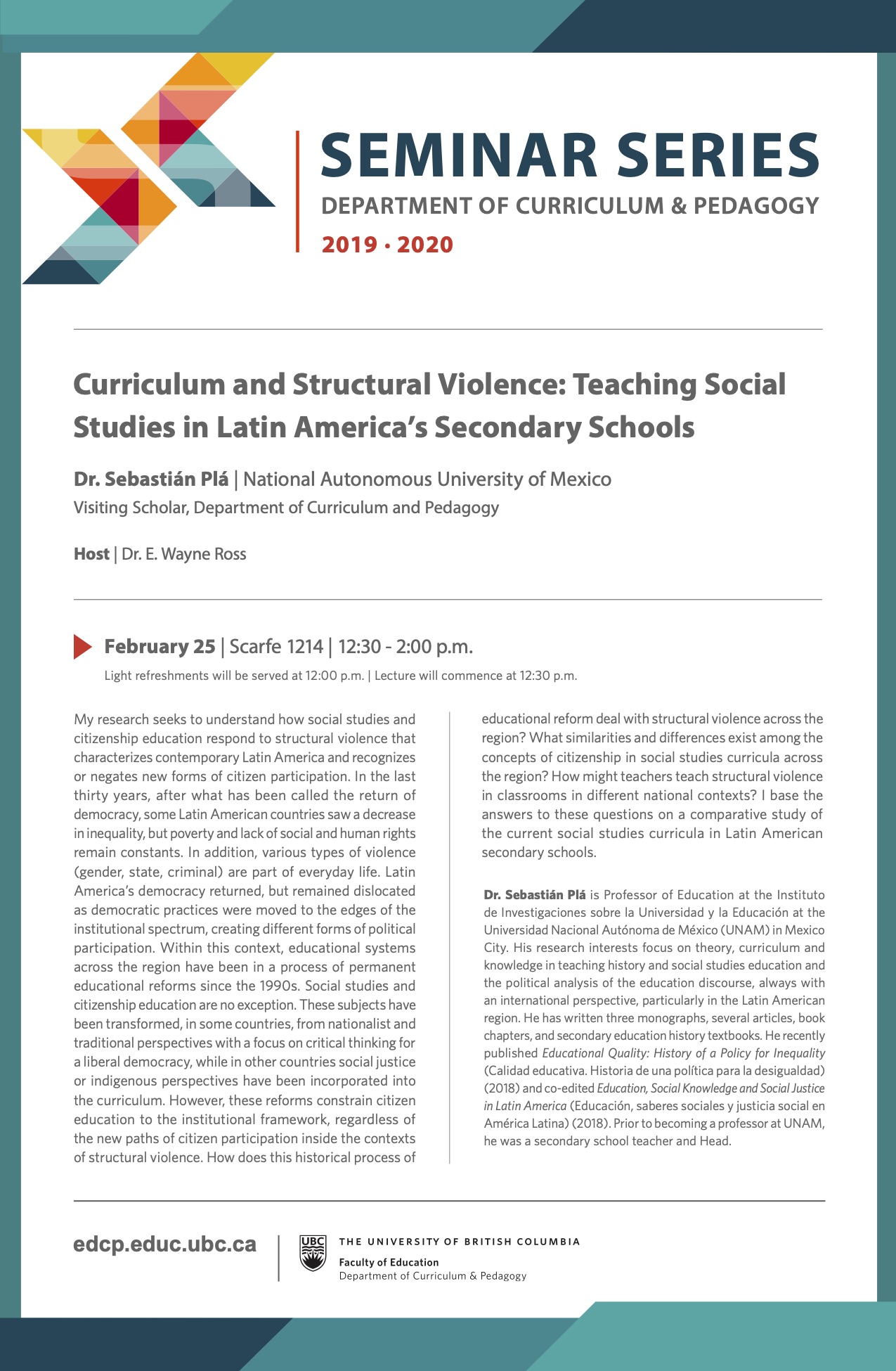
 Follow
Follow

